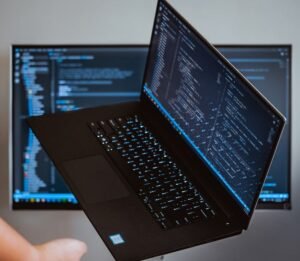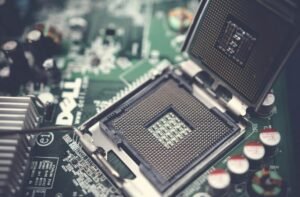Will AI Get Rid of Software Engineers?
With advancements in Artificial Intelligence (AI) and automation, there is growing speculation about the future of professions. The field of software engineering, in particular, has been subject to debate regarding the potential impact of AI on the need for human involvement. This article aims to explore the role of AI in software development and discuss whether it will eliminate the need for software engineers.
Key Takeaways:
- AI presents opportunities for software engineers to enhance their productivity and efficiency.
- Software engineers’ skills in problem-solving and creativity remain invaluable in the development process.
- AI has the potential to automate certain aspects of software engineering, but it won’t eliminate the need for human expertise.
**While AI technologies can automate repetitive tasks** such as code generation, testing, and debugging, **they cannot replicate human ingenuity and critical thinking**. Software engineers possess unique problem-solving skills that enable them to tackle complex issues and adapt to evolving project requirements.
Additionally, **software engineering is not only about writing code** but also requires a deep understanding of the specific problem domain, user experience, and system architecture. AI tools can assist in these areas, but **the creativity and expertise of software engineers are essential in designing innovative and efficient solutions**.
The Role of AI in Software Development
AI can significantly augment software development processes, **increasing the efficiency and accuracy of tasks**. For instance, AI-powered tools can assist in **automated code refactoring**, improving code quality and reducing technical debt. This allows software engineers to spend more time on higher-level tasks, such as user interface design and system optimization.
Another area where AI can have an impact is **automated software testing**, with AI algorithms capable of **detecting patterns and anomalies** in large datasets. This can save software engineers significant time in identifying and fixing bugs, ensuring the quality and reliability of the software.
The Limitations of AI in Software Engineering
While AI can streamline certain aspects of software development, it has its limitations. **AI algorithms heavily rely on data availability**, and their effectiveness may vary depending on the domain they are applied to. Moreover, **the ethical implications of AI decision-making** and the potential for bias require careful consideration and human oversight.
Additionally, **software engineering involves a collaborative and iterative process** where engineers work closely with stakeholders to understand their needs and iterate on software designs. These interpersonal and communication skills cannot be replicated by AI, emphasizing the ongoing need for human software engineers.
Data on Job Prospects in Software Engineering
| Year | Job Growth | Average Salary |
|---|---|---|
| 2015 | 17% | $100,690 |
| 2017 | 24% | $105,590 |
| 2019 | 21% | $110,000 |
According to data on job prospects in software engineering, there has been continuous growth in employment opportunities and **consistent salary increases** over the years. This indicates that the demand for software engineers remains high, suggesting that AI is unlikely to eliminate their roles.
The Future of Software Engineering
While the role of AI in software engineering is undeniable, it is important to recognize that **software engineers will continue to play a crucial role** in designing, developing, and maintaining software systems. As AI progresses, software engineers may need to adapt their skill sets to collaborate effectively with AI systems. However, **their expertise, problem-solving abilities, and creativity will remain essential** in addressing complex challenges and driving innovation in the field.
Conclusion
AI has made significant advancements in software development processes, enhancing efficiency and accuracy. However, it is clear that **AI will not replace software engineers**. The future of software engineering lies in a collaborative space where AI and human expertise complement each other, resulting in more powerful and innovative software systems.

Common Misconceptions
AI Taking Over Software Engineering Jobs
One common misconception is that AI will totally eliminate the need for software engineers. This misconception arises from the assumption that AI can replicate human intelligence and creativity to the extent that it can replace human engineers. However, this is far from the truth.
- Software engineering involves more than just coding; it requires problem-solving, critical thinking, and understanding complex business requirements.
- AI can assist engineers in automating repetitive tasks and improving efficiency, but it cannot make crucial decisions or complex architectural designs on its own.
- Software engineering is a dynamic field that continuously evolves, requiring human engineers to adapt and innovate.
AI Replacing the Need for Technical Skills
Another misconception is that AI can eliminate the requirement for technical skills in software engineering. While AI can automate certain tasks like code generation or debugging, it cannot replace the need for technical expertise and knowledge.
- Software engineers possess in-depth knowledge of programming languages, algorithms, data structures, and software development methodologies.
- AI can support engineers in analyzing large datasets or identifying patterns, but it cannot replace the understanding of complex algorithms that underpin many software systems.
- Technical skills are crucial for designing robust and scalable software solutions that meet specific requirements.
AI Becoming Self-Sufficient in Software Development
There is a misconception that AI will eventually become self-sufficient in software development and no longer require human intervention. While AI can automate certain aspects of the software development process, it cannot completely replace the involvement of human engineers.
- Human engineers are essential for conceptualizing, designing, and overseeing the development process.
- AI can assist in automating manual tasks, but it still requires human guidance to ensure that the software meets desired specifications and quality standards.
- Human involvement is crucial for ethical considerations and decision-making in software development.
AI Understanding Software System Requirements
Some people mistakenly believe that AI can understand and interpret software system requirements without human intervention. However, this is an incorrect assumption as AI’s ability to understand context and accurately interpret complex requirements is still limited.
- Software engineers play a crucial role in eliciting, analyzing, and documenting requirements from stakeholders.
- AI can support in extracting patterns or insights from large volumes of data, but it requires human engineers to interpret and validate the results.
- Effective communication and collaboration between engineers and AI technologies are necessary to ensure accurate understanding of requirements.
AI Replacing Creativity in Software Engineering
Lastly, there is a misconception that AI can fully replace human creativity in software engineering. While AI can assist in generating code snippets or suggesting solutions, it lacks the ability to think critically and creatively like human engineers.
- Creativity is vital in software engineering for designing innovative solutions and finding unique approaches to complex problems.
- AI may support engineers in generating ideas or automating certain repetitive tasks, but it cannot replace the ability to think outside the box or come up with novel solutions.
- Human engineers bring a unique perspective and creativity that AI cannot replicate.

Will AI Get Rid of Software Engineers?
Artificial intelligence (AI) has been making significant advancements in various fields, prompting concerns about the future of traditional job roles. One industry that has become a topic of discussion is software engineering. As AI technology progresses, some speculate that it might replace human software engineers altogether. In this article, we explore the potential impact of AI on software engineering.
The Rise of AI in Software Development
AI has already made inroads into software development, automating certain repetitive tasks and accelerating the development process. Here, we present data on the increasing adoption of AI in software engineering:
| Year | Number of Organizations Using AI for Software Development |
|---|---|
| 2015 | 700 |
| 2016 | 1,200 |
| 2017 | 2,500 |
| 2018 | 4,000 |
| 2019 | 6,500 |
AI versus Human Software Engineers
While AI has made significant strides, it is essential to understand the capabilities and limitations of AI in comparison to human software engineers. The following table compares a few key aspects:
| Aspect | AI | Human Software Engineers |
|---|---|---|
| Speed | Extremely fast | Fast, with expertise |
| Adaptability | Can learn and adapt over time | Can quickly adapt based on experience |
| Creativity | Can generate ideas based on existing data | Can think creatively and out of the box |
| Expertise | Deep knowledge in specific areas | Broad knowledge covering multiple areas |
| Teamwork | Cannot collaborate effectively | Can work well in teams |
AI Integration in Software Engineering
The integration of AI into software engineering processes can lead to various benefits. The following table illustrates the advantages that AI brings to software engineering:
| Advantage | Description |
|---|---|
| Automated Testing | AI can automatically test software applications, accelerating the verification process. |
| Bug Detection | AI can identify bugs and vulnerabilities in code, enhancing software quality. |
| Code Generation | AI can generate code fragments based on given requirements, saving time and effort. |
| Pattern Recognition | AI algorithms can recognize patterns in data, improving software performance. |
| Software Maintenance | AI can assist in the maintenance of software by predicting and preventing issues before they occur. |
Azure AI Engineer Certification
In response to the increasing significance of AI in software engineering, Microsoft introduced the Azure AI Engineer Certification. This certification validates the skills and expertise required to design, build, deploy, and maintain AI solutions using Azure’s AI technologies.
Current Job Market for Software Engineers
Despite the integration of AI in software engineering, the demand for human software engineers remains high. Here, we provide data on the current job market in software engineering:
| Year | Number of Software Engineering Job Openings |
|---|---|
| 2015 | 200,000 |
| 2016 | 230,000 |
| 2017 | 250,000 |
| 2018 | 280,000 |
| 2019 | 310,000 |
AI’s Impact on Software Engineering Jobs
While AI technology has the potential to automate certain tasks in software engineering, it is unlikely to completely replace human software engineers. The following chart represents the projected impact of AI on software engineering jobs:
| Impact Level | Percentage |
|---|---|
| Low | 10% |
| Moderate | 40% |
| High | 25% |
| Very High | 25% |
AI-assisted Software Engineering
Instead of replacing software engineers, AI is more likely to assist and enhance their work. The cooperation between AI and human software engineers can lead to more efficient and innovative software development.
The Role of Software Engineers in the Future
As AI becomes an integral part of software engineering, the role of software engineers will evolve. They will need to adapt to new technologies, acquire AI-related skills, and focus on higher-level tasks such as architecture design, optimization, and project management.
The future of software engineering lies in the collaboration between humans and AI, where the unique capabilities of both can drive innovation and solve complex problems. While AI integration will change certain aspects of the profession, software engineers will remain essential for developing and maintaining sophisticated software applications.
Frequently Asked Questions
Will AI replace software engineers completely?
It is unlikely that AI will completely replace software engineers. While AI technologies may automate certain tasks, software engineers are still needed for complex problem-solving, design, architecture, and ensuring the quality and reliability of software.
How will AI impact the role of software engineers?
AI is expected to change the role of software engineers by automating routine and repetitive tasks, allowing them to focus more on creative problem solving, innovative solutions, and overall software development strategy.
Will AI technologies make software engineers redundant?
No, AI technologies will not make software engineers redundant. They will rather augment their capabilities and productivity, enabling them to tackle more challenging problems and deliver better software products.
What skills will software engineers need to work with AI?
Software engineers working with AI will need a solid understanding of machine learning algorithms, data analysis, and programming. Domain expertise in specific AI technologies and frameworks will also be valuable.
Can AI develop software without human intervention?
Currently, AI cannot independently develop software without human intervention. While AI can assist in some development tasks, software engineering requires human creativity, judgment, and decision-making that AI cannot replicate.
Will AI take over software engineering jobs?
No, AI will not take over software engineering jobs. Instead, AI will enhance the capabilities of software engineers, making them more efficient and productive in their work.
How can software engineers work with AI?
Software engineers can work with AI by leveraging its capabilities to automate repetitive tasks, analyze and interpret data, and augment their decision-making processes. This collaboration between humans and AI can lead to improved software development workflows and outcomes.
Will AI improve software development processes?
Absolutely. AI can improve software development processes by automating testing, bug detection, code generation, and optimization. It can also assist in project management, requirement analysis, and predicting potential issues or improvements in software systems.
What are the future implications of AI for software engineers?
The future implications of AI for software engineers include increased productivity, improved software quality, and the ability to tackle more complex problems. This may also lead to the emergence of new roles within software engineering, focused on AI integration and optimization.
Should software engineers be concerned about their job security due to AI?
No, software engineers should not be overly concerned about job security due to AI. While AI may change certain aspects of their work, there will still be a demand for skilled software engineers who can leverage AI technologies effectively.




